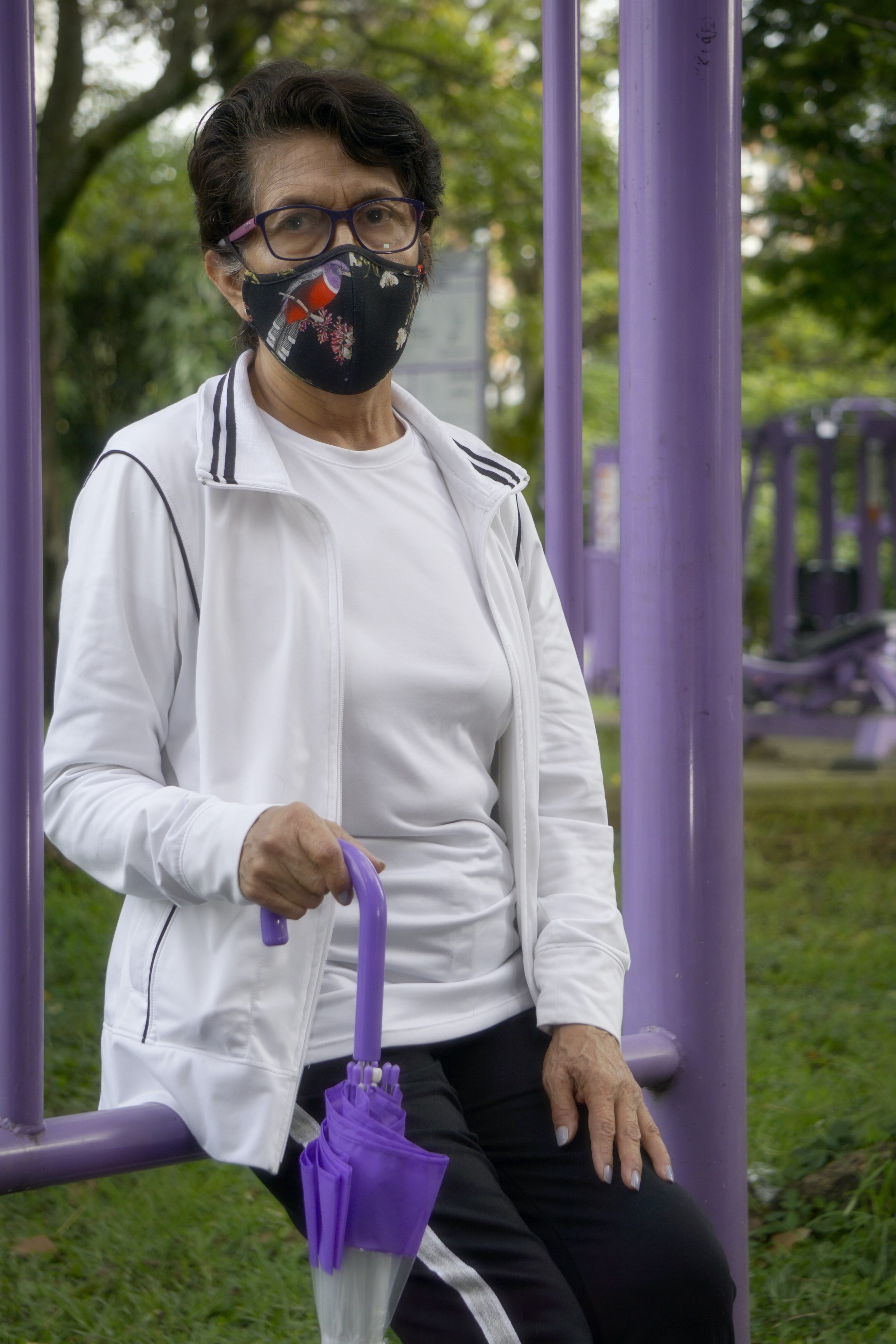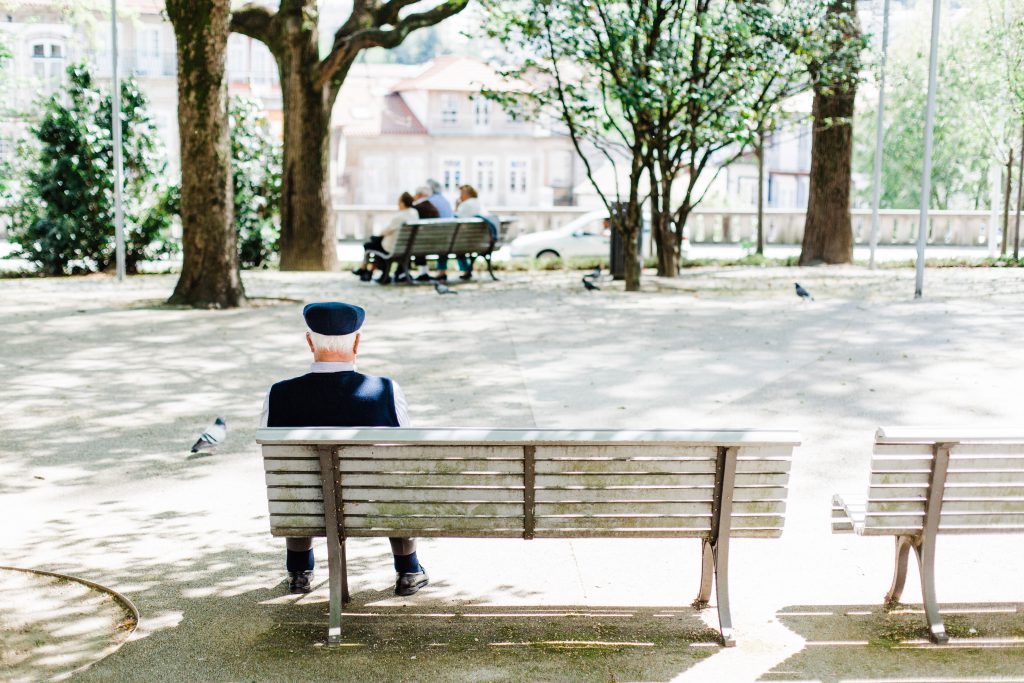Thinking about retirement

I juggled working as a bookkeeper, homemaker, and a caregiver for many years. However, following my husband’s Parkinson’s diagnosis and deteriorating health, I recognized that it was time to enter the next stage of life. In July 2020, at the age of 82, I retired from my job at the accounting firm. Retirement has been a difficult change for me, and it has had its additional challenges because of the pandemic.
– Bluma (story gathered Megan De Cruz, student occupational therapist)
Retirement, as a life transition, seems easy to define. It is often understood as a new phase of life where working life has ended and we move into a phase of life that does not involve working, and where, if fortunate, we are supported by income from other sources. In Canada, this generally means gaining access to a government-funded pension tied to our involvement in work.
Depending on our work history and other conditions which shape retirement, we may have access to other sources of government support or access to private pensions and retirement savings. The access to these supports can have a big impact on when we decide to retire and what our life will look like afterwards.
Given that most Canadians do not have to retire at 65 any longer, there is a greater need to think about the different aspects of this life transition. Questions such as when to retire and whether to do it gradually or quickly are influenced by our finances, options within our working life, and our physical and mental well-being. For many of us, retirement has become an open question, and for some, retirement is not affordable, and may not be a choice.
These days, many workers are willing and able to work well past 65 despite qualifying for Old Age Security and the Guaranteed Income Supplement. Statistics Canada reports more than 40% of Canadians aged 65 to 69 are currently employed—and most say it is because they simply want to do it. The flip side is that some Canadians have no choice but to continue working even if they want to retire; Canadians who were out of work for a period in mid-life, who had to take time off for health/family reasons, or whose working life consisted of low paying jobs.
We live in a time where Canadians have less access to private pension plans and must work in an economy that makes it hard to save for retirement. It seems that only a lucky few have the means to keep up the same lifestyle after retiring. However, at the same time, most Canadians do leave work as they age. Some might choose when, but the question of retirement may be forced upon others by workplace closures, health/personal issues, or perhaps a loved one who requires care. Still, others may be quietly pushed out because of ageist attitudes (an ‘out with the old, in with the new’ attitude). Or maybe we find that our skills and experience are no longer valued.
The retirement process is a major life transition, and as with all life transitions, there is a lot riding on how we navigate it. Simply put, there is no cookie-cutter experience for Canadian retirees.
Experiencing Retirement-It’s not so black and white
Since retirement, I’m having the time of my life.
– Barbara
The potential joys of retirement are no secret: we can be free from work obligations and have much greater control over how our time is spent. We can be spontaneous and indulge in all the things for which there was never enough time before retirement, whether that be volunteering, joining a social/leisure club, or indulging in hobbies and other meaningful pastimes. Unsurprisingly, experts have linked this freedom with increased satisfaction and well-being, but too much of a good thing can become problematic.
For those fortunate enough to not have to worry about savings, the story often goes like this. The newly retired person is delighted to be over the finish line and are filled with feelings of liberation, excitement, and relief – experts call this the ‘honeymoon phase’. They might find themselves taking advantage of the new opportunities in front of them like reconnecting with their partner and family, or travelling.
There is no singular retirement experience and for some, the golden years, may not be so golden.
The ‘honeymoon phase’ is short-lived and the euphoria doesn’t last. The laundry list of things planned to get done post-retirement – maybe it was fixing things or starting a new hobby – can quickly expire.
I worked as a construction foreman for many years. Even though I enjoyed my work, I was eager to retire. The first year of retirement was exhilarating. I visited my sister and nephews in Scotland, travelled with my wife to Europe and Asia, and renovated my garden. But after that first year, I had done everything that I had wanted to do. I felt restless because I had nothing to look forward to in the day. Retirement stripped me of purpose.
– Peter
Without planning, this can leave us empty and directionless. Research has found that the average retiree spends approximately 43.5 hours watching TV a week — essentially replacing their former work week. So one paradox of retirement that researchers have discovered is that retirees long for the freedom, but at the same time they need a level of routine and productivity in their lives.
For those who are forced to retire and who may not have adequate resources and supports in place, retirement can be a particularly challenging transition. The problem of forced retirement is the lack of time to plan. This can have negative effects on health, especially if we are forced to leave behind a job that we found interesting, meaningful, or otherwise satisfying. Research shows that forced retirement can be related to lowered life satisfaction, and depressive symptoms (Hyde et al. 2015), including feeling hopeless, worthless, irritable, and changes to our sleep patterns and appetite. Anxiety is also a common issue among forced retirees. When we are not able to move past the depression and/or anxiety, there is a greater risk of unhealthy choices including greater use of alcohol, drugs, gambling or other addictions. Forced retirement may also have a major impact on our families.
The uncertain recovery timeline and a job market created by the COVID-19 pandemic have forced many of us who were nearing the end of our careers into involuntary retirement. Experts believe that the pandemic will upend the timing of retirement plans for many older workers. In fact, according to a recently published report, the pandemic has given rise to a surge in early retirement. While this decision will be voluntary for some of us, for others retirement maybe forced upon them by job elimination or unavoidable health risks. But retirement is not a cookie-cutter experience.
If there was no COVID, I would be retired. But what would I do with all my time? I can’t go anywhere or visit anyone, friends or family?
– Jean, a 67 year old operations manager
Jean’s remark highlights the need to maintain purpose, structure and meaningful engagement in social activities in retirement. Much of adulthood is spent earning a living and our work often provides our core identity. When we are asked about what we do, we often reply with “I am a postal worker/an engineer/a truck driver” But when we stop working, who do we become? What is our purpose? We do not always spend time thinking about what pursuits, projects or activities will continue to provide us with a sense of purpose beyond work.

Social isolation is another common experience for retirees. Though information about isolation among Canadian seniors is limited, what we do know is that many are socially isolated or at risk of becoming so. In a Statistics Canada 2012 Health Report, almost one in four adults over 65 (24%) reported that they did not experience enough social activities in the last year. A 2008/09 Statistics Canada report found that found that 19% of people aged 65+ felt a lack of companionship, excluded, or isolated from others. Also, according to a 2006 study over 30% of Canada’s seniors are at risk of social isolation.
Our jobs provide us with a daily platform for socialization; we talk to our coworkers about our weekend, share stories about our pets and our kids, etc. Once we retire, our main source of daily interaction is suddenly gone. Social isolation can not only lead to boredom, but it can also have a negative impact on physical and mental health.
So, retirement can lead from one type of imbalance (too much work) to another (a lack of regular commitments, identity, and social supports). Without the daily grind, we may feel empty or unfulfilled, but with the right supports and planning retirement can be a time of continuing fulfillment and growth.
Retirement is a process
We tend to think of retirement as black and white – either we’re working or we’re not. However, there’s a grey area that many of us inhabit. I include myself in this group. I retired from my role as a healthcare professional and university professor a couple years ago, but maintain my own small freelance business. I can set my own schedule and decide how many hours I work. In other words, I feel freer. There’s also a misconception that retirement tends to lead to isolation and lack of meaning – that doesn’t have to be the case. By making a conscious effort to volunteer, foster new connections and maintain important old ones, I’m able to feel productive while also enjoying a meaningful social life.
– Pat McKee (The story, written by Ilan Mester, was inspired by an interview by Claudia Yousif.)
Retirement is not a one-time event – many of us are thinking about retirement long before we retire. Some of us continue part-time or do contract work shortly after leaving our jobs. Along this journey, we likely have many decisions to make, plans to put in place, and challenges to overcome.
Here are some questions you may be asking yourself:
- When should I retire?
- How do I prepare for retirement?
- Where will I live after retirement?
- How will my social life and friendships be maintained and built after retirement?
- What will I do with all my time?
- Will I have enough money to support me into deep old age?
- Who will care for me as I grow older?
- Who will I be, when I’m not a worker, how will I contribute?
- How do I stay healthy in retirement?
- Who can help me navigate the retirement process?
Most retirement planners focus on the financial side, but occupational therapists know that how we use our time and what activities we engage in are crucial if we are to remain, healthy, happy, and meaningfully engaged throughout retirement.
So, how can occupational therapists support our retirement process?
Occupational therapists are problem-solvers who start with a focus on what, “makes us tick”, who are we, what do we value, who do we want to become and what is blocking us from doing the things we want to do to get there. Occupational therapists will want to know what activities engage us, structure our days, provide a sense of meaning and express our identities. The answers to these questions inform and guide how we might best plan, deal with obstacles (e.g., limited financial resources or social supports, health changes, ageism) and navigate the transition to retirement.
Not everyone who is planning to retire or has retired will require professional intervention to adapt. In fact, most people are self-sufficient when faced with the challenges of retirement. However, if you require the support, an occupational therapist can help you adapt positively!

